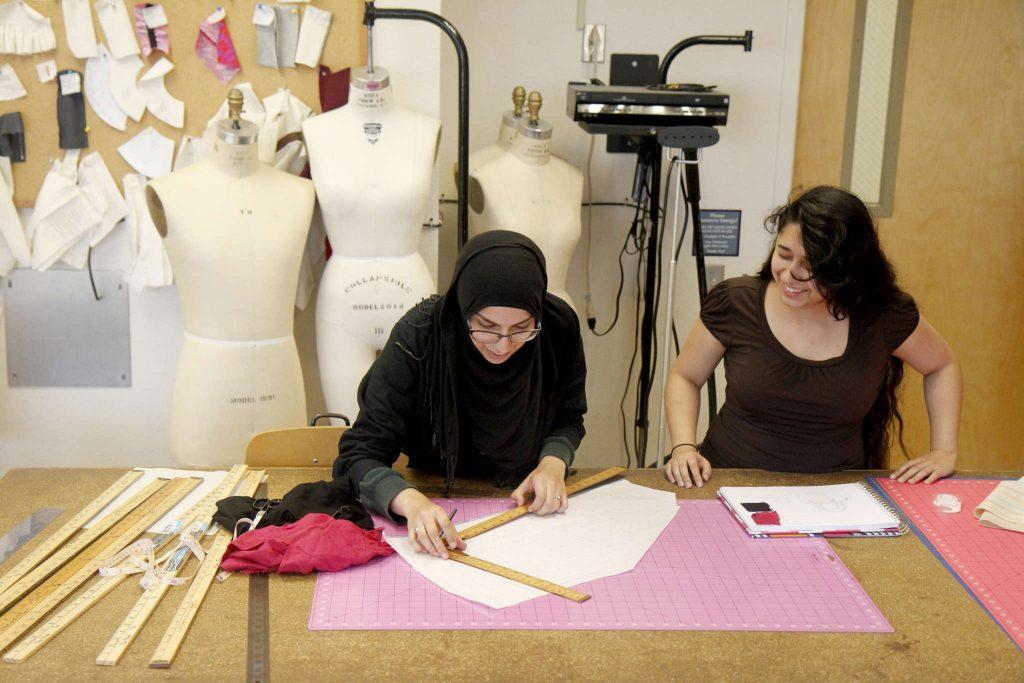While in a penitentiary in Peru, a group of women meticulously embroidered hints of their rich culture into trendy clutches and backpacks. With the help of an SF State alumna, the produced goods now serve as building blocks for their prosperous future.
Amanda Smiles began her non-profit organization Ruraq Maki in 2009, after a study abroad program in Peru turned into a life calling. Since its inception, the non-governmental organization has created economic opportunities for more than 200 low-income and imprisoned Peruvian and Bolivian female artisans through the making and selling of traditional crafts.
The Peruvian women Smiles worked with were incarcerated after being charged with drug trafficking, one of the highest offenses in the South American country, punishable with up to 10-15 years in prison, according to Smiles. Unlike the United States justice system, Peru has a degree of “guilty until proven innocent” regardless of the quantity of the drug obtained, Smiles said.
The alumna learned about the imprisoned women while she studied in the local city of Ayacucho. She was given two weeks to find a skill she could teach them as a part of her volunteer opportunity.

“I did a two-month jewelry making class for the women in the prison and it was the first time that a volunteer really taught them a skill that they could actually use to make money,” Smiles said about her first experience with the artisans.
After returning to the U.S. to continue her undergraduate degree in liberal arts, Smiles received a message from the women in Peru inviting her to come back and continue working with them. After some hesitation, Smiles booked a flight to Peru for six weeks and began to discuss with the women a way for them to make a living and develop a skill base to best benefit them during their time in prison and after their release.
“I asked them ‘If I started a program – a non-profit/NGO for you, what would you want?’ and they told me what they really needed at the moment was to earn money from the products they were making,” Smiles said.
Smiles came back to the U.S. and sold some of the handcrafted products the women had made out of a traditional soft cotton material called manta. She did this to bring back revenue and develop a long-standing program for the women.
Ruraq Maki values the cultural preservation of both the South American countries they work with, whether it is through their fabrics, textures or the cultural morals and practices that goes into their artisan work, according to their mission statement. The organization also implements fair trade practices and standard wages in order for the artisans to earn the compensation necessary for feeding and educating their families.

Beyond making traditional pieces, Smiles wanted to create a long-standing opportunity for the women and knew that could only happen if they were creating accessories that would be desirable in the U.S. market. That was where Smiles enlisted the help of SF State’s apparel design and merchandising students.
Kelly Reddy-Best, an assistant professor of ADM at SF State, saw Smiles’ listing for volunteer workers and contacted the fellow alumna to create an opportunity that benefited them both.
“Dr. Reddy-Best reached out to Ruraq Maki through a volunteer website,” Smiles said. “We love the fact that a lot of students are getting to give back.”
For the ADM professor, the partnership was a great opportunity for her apparel design students to gain experience in volunteer work while also acquiring skills in accessory making.
The SF State students began to make trend boards that detailed what was in demand in order to create samples and designs that could be lucrative for the low-income women to create and sell both in their local markets and in the U.S.
Along with building their professional portfolios and giving back, the ADM students also gained internship credit or volunteer hours toward their degrees.
“I think it’s great that we’re all benefitting from it and being able to help this great cause – it’s a really positive thing on all fronts,” said ADM student Ruth Reyes about her experience designing samples for Ruraq Maki.
The ADM students created 12-15 samples that have been taken back to the women in South America since beginning work with the foundation in Spring 2014. Those designs have aided in creating a form of income for the Peruvian women in prison and as a way out of poverty for the women in Bolivia.
In addition to continuing the design and merchandising aspect of the organization with Reddy-Best, Smiles said she hopes to branch out to more business-oriented classes and also wants to help the women develop skills that will aid them in an easy transition to the outside world after being released from prison.
“The goal of the organization is for (the women) to become independent artisans and so the fact that their selling designs that we brought them within their local market is a success for us,” Smiles said.







